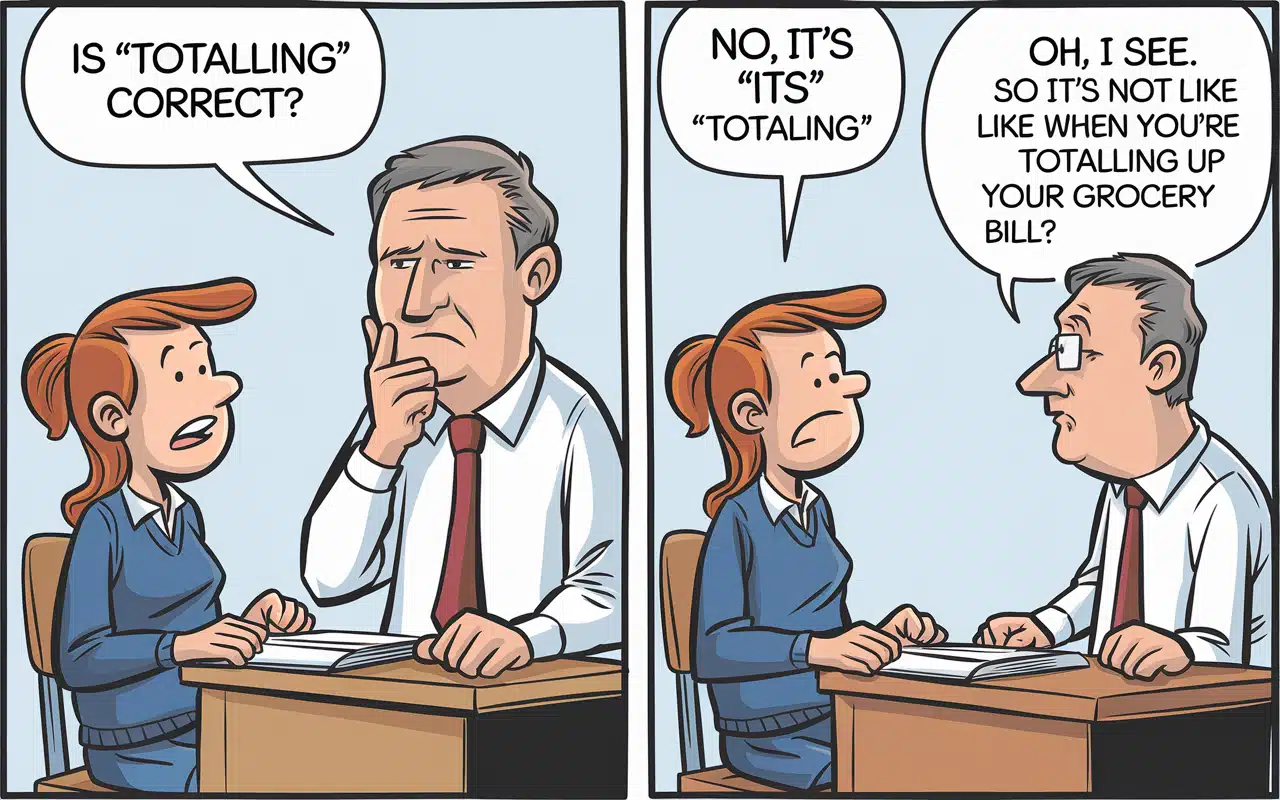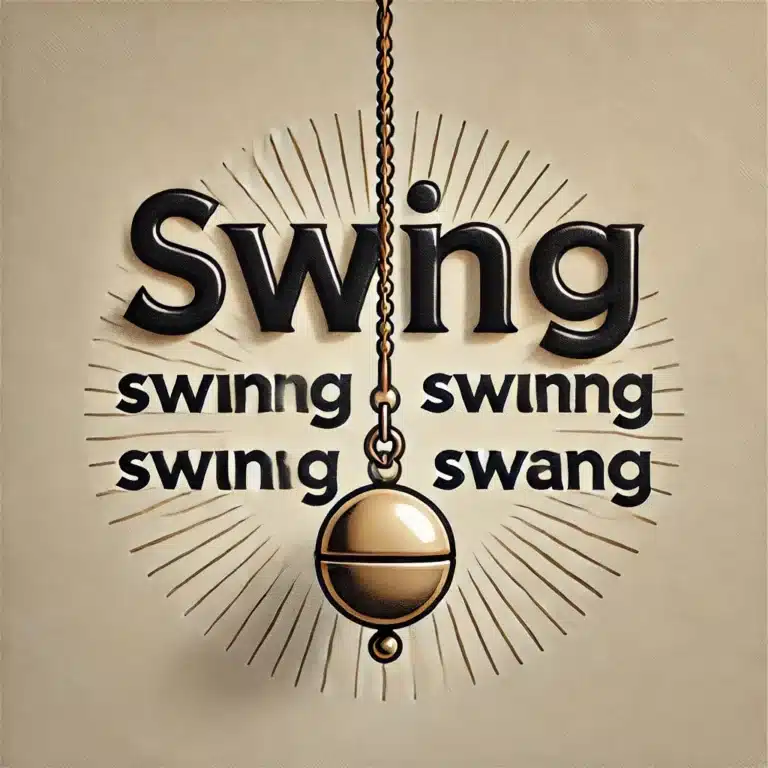Totalling vs Totaling: How to Solve the Spelling Puzzle in English
Introduction:
Ever wondered why some people spell it “totalling” while others write “totaling”? This small difference between British and American English often stirs up confusion. In this guide, we’ll break down the reasons behind these spellings, explain where they come from, and show you when to use each one. Let’s settle this once and for all!
The Origins of “Total” and Its Derivatives
The word “total” traces its roots to the Latin “totalis”, meaning “entire” or “complete”. As English evolved, so did the usage of “total” and its various forms. The verb “to total” emerged, meaning to add up or calculate the sum of something.
- Old French: “total”
- Middle English: “total”
- Modern English: “total” (noun, adjective, verb)
Totalling and Totaling: Decoding the Meaning
Whether spelled with one “l” or two, both “totalling” and “totaling” carry the same meaning. They are the present participle forms of the verb “to total”.
Usage examples:
- The accountant is totaling/totalling the expenses for the fiscal year.
- After totaling/totalling the scores, we’ll announce the winner.
| Form | Part of Speech | Example |
|---|---|---|
| Total | Noun | The total came to $500. |
| Total | Adjective | It was a total disaster. |
| Total | Verb | Please total these figures. |
| Totaling/Totalling | Present Participle | She’s totaling the receipts. |
The Great Divide: British vs American English
The crux of the “totalling” vs “totaling” debate lies in the regional differences between British and American English spelling conventions.
- British English: Prefers “totalling” (double ‘l’)
- American English: Favors “totaling” (single ‘l’)
This divergence stems from Noah Webster’s efforts in the early 19th century to distinguish American English and simplify spelling. His influence led to many spelling differences we see today, including the preference for single ‘l’ in words like “totaling”.
Read About : Agreeance vs Agreement: The Word Battle You Didn’t Know You Needed to Win
Double-L or Single-L: The Rule of Thumb
The general rule for adding -ing to verbs ending in ‘l’ differs between British and American English:
British English Rule:
- For verbs ending in a single vowel + ‘l’, double the ‘l’ before adding -ing.
Examples: travel → travelling, cancel → cancelling
American English Rule:
- Only double the ‘l’ if the stress falls on the final syllable.
Examples: expel → expelling, but travel → traveling
“In British English, we instinctively double the ‘l’ in words like ‘totalling’. It just looks right to us,” says Dr. Emma Watson, a linguistics professor at Oxford University.
Global Usage Trends
Google Ngram data reveals interesting trends in the usage of “totalling” vs “totaling”:
- In British English corpus: “Totalling” consistently out performs “totaling”
- In American English corpus: “Totaling” has been the preferred spelling since the 1900s
![Google Ngram Comparison][]
Impact on SEO and Digital Communication
In our digital age, spelling choices can impact search engine optimization (SEO) and global communication:
- Use “totaling” for US-focused content
- Opt for “totalling” for UK-centric websites
- For global reach, consider using both spellings or choosing based on your primary audience
Common Misspellings and How to Avoid Them
Avoid these common errors:
- ❌ Totaling (in British English)
- ❌ Totalling (in American English)
- ❌ Totaling (with one ‘l’ in British English)
Mnemonic device: “British tea has two ‘l’s, just like British ‘totalling’.”
Totalling/Totaling in Various Industries
Different sectors frequently use these terms:
- Accounting and Finance – Totaling expenses, revenues, and profits
- Sports Statistics – Totalling points, goals, or scores
- Scientific Research
- Calculating and totaling data points
Case Study: The International Cricket Council (ICC) uses “totalling” in its official scorecards, reflecting its British English roots.
Practical Examples: Totalling and Totaling in Action
British English:
- The cashier was totalling the day’s receipts when she noticed a discrepancy.
- After totalling the votes, the election results were announced.
American English:
- The computer is totaling the inventory for our annual report.
- By totaling the survey responses, we gained valuable insights into customer preferences.
The Verdict: Which Spelling Should You Choose?
Consider these factors when deciding:
- Your target audience’s location
- The style guide you’re following
- Consistency within your document or website
“Consistency is key. Choose one spelling and stick to it throughout your writing,” advises Sarah Johnson, editor at The Chicago Manual of Style.
Beyond Totalling/Totaling: Related Words and Their Spellings
| British English | American English |
|---|---|
| Travelling | Traveling |
| Cancelling | Canceling |
| Modelling | Modeling |
Expert Opinions: What Linguists and Style Guides Say
- The Oxford English Dictionary recognizes both spellings but lists “totalling” first.
- The Associated Press Stylebook recommends “totaling” for American audiences.
- The Economist Style Guide, primarily British, advocates for “totalling”.
The Future of English Spelling: Trends and Predictions
As digital communication blurs geographical boundaries, we might see:
- Increased acceptance of both spellings
- Potential standardization efforts in specific industries
- Growing influence of American spelling due to tech dominance
Key Takeaways
- British English: Use “totalling”
- American English: Use “totaling”
- Consider your audience and be consistent
- Both spellings are correct in their respective regions
FAQs About Totalling and Totaling
- Q: Is “totaling” wrong? A: No, it’s the correct American English spelling.
- Q: Can I use “totalling” in the US? A: While understood, it may be seen as a British variant.
- Q: Which spelling is more common globally? A: “Totaling” is more common due to American English’s global influence.
By understanding the difference between “totalling” and “totaling,” you’ll improve your writing and show cultural awareness. Always consider your audience and pick the right spelling for the situation.







